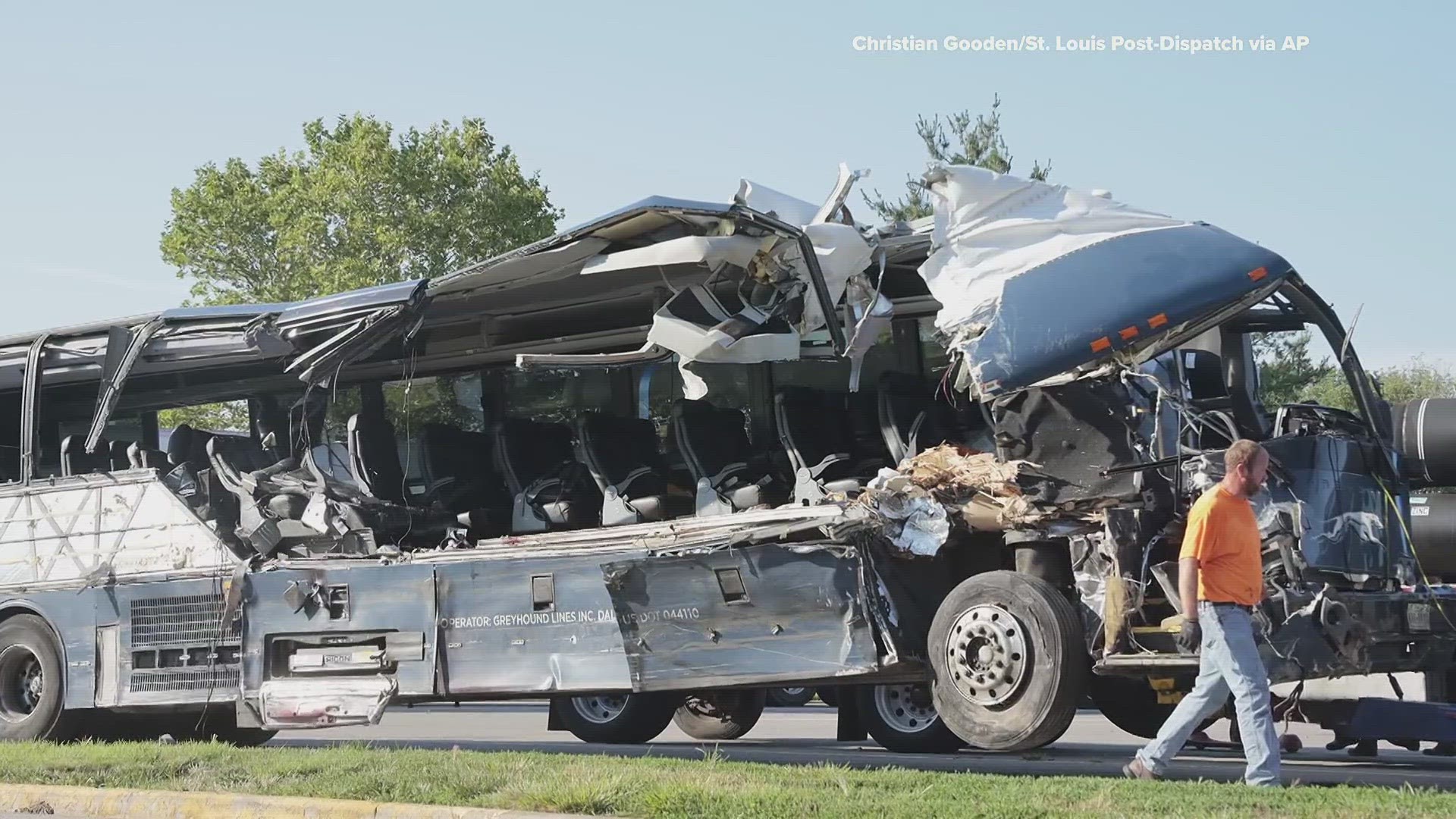HIGHLAND, Ill. — Bus and truck drivers complain there’s not enough spots for them to park, and it’s making them break the law while putting themselves and others in danger.
Brent France has been a trucker for years. Every year brings the same challenge, only worse, with fewer and fewer places to park.
“It's very frustrating," he said. “That's probably the number one thing I deal with every day.”
We met him near the site of the recent deadly Greyhound bus crash in southern Illinois.
On July 12, at around 2 in the morning, a driver slammed into three tractor-trailers parked along an exit ramp. Truckers often park along exit ramps at night. It’s illegal in Illinois. But police often turn a blind eye. They know there’s a severe parking shortage. For France, it’s a constant struggle.
“I have two choices," France said. "I have to sacrifice money out of my pocket through either fines or a loss of miles per day."
In other states, there are consequences. In Tennessee over the last year, France said he’s been forced to park where he’s not supposed to and fined about $550. His search for parking often means driving fewer miles and, in turn, less pay. It’s a Catch-22.
“Does the lack of parking spaces put you in danger?” Senior Investigative Reporter Paula Vasan asked.
“Worse than putting me in danger, it puts everyone around me in danger," France said.
He said truckers are forced to drive even when they’re exhausted and need to pull over. And because of scarce parking, he said drivers can’t stop when they need to. It means they can’t always follow federal regulations, which limits how long they can drive before stopping to rest.
“You have to break the law because there are not enough parking spots available," Vasan said.
“Yes, I have to make the choice to drive illegal and break the law," France said.
We interviewed France at a rest stop. In the span of 30 minutes, we saw more and more trucks piling in. The closer to 5 p.m., the more crowded. And at night, forget about it. Truckers said rest stops are completely filled up.
“There's probably, I'm going to guess, maybe 40 spaces here," France said. "That's not enough. I mean, if there were a hundred here, that still wouldn't be enough for the number of trucks."
It’s why U.S. Rep. Mike Bost (R-IL), who comes from generations of truckers, is fighting for his legislation to become law. It’s called the Truck Parking Safety Improvement Act, or H.R.2187.
It would target state-by-state funding, specifically for more commercial parking spots.
“Trucks are not only parking in the rest areas or the truck stops, they're parking on the off ramps. They're parking on the on ramps. They're parking along the shoulder," Bost said.
France said he believes this is something everyone should care about.
“It's your safety," he said.
Bost’s legislation is being debated in the House right now. If it passes, it’ll go to the Senate. It could become law as early as January. Critics have argued there are more important ways to spend infrastructure money other than parking, but bus and truck drivers disagree.
We reached out to the Missouri Department of Transportation and the Illinois Department of Transportation to find out how much money is spent on commercial parking in each state, and the percentage it represents of the state’s latest overall budget.
In Missouri, MoDOT's facilities budget totals $24.5 million. A total of $12.5 million is budgeted to support welcome centers, rest areas and truck parking facilities.
A spokesperson for IDOT previously told 5 On Your Side that the agency is expanding parking at three rest areas, adding 122 parking spaces. $7.2 million was allotted for that project by Illinois Gov. J.B. Pritzker. Additional plans call for real-time information about available commercial parking spaces.
Have a news tip for the I-Team? Use the form below or email us at tips@ksdk.com.

